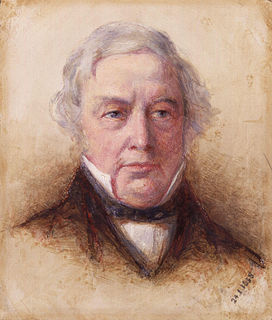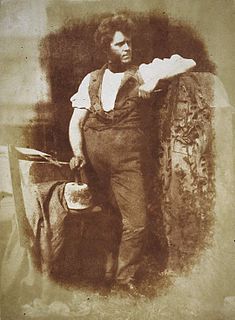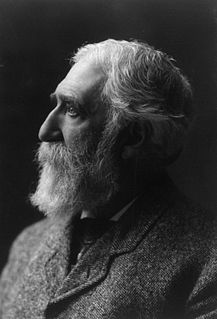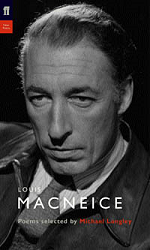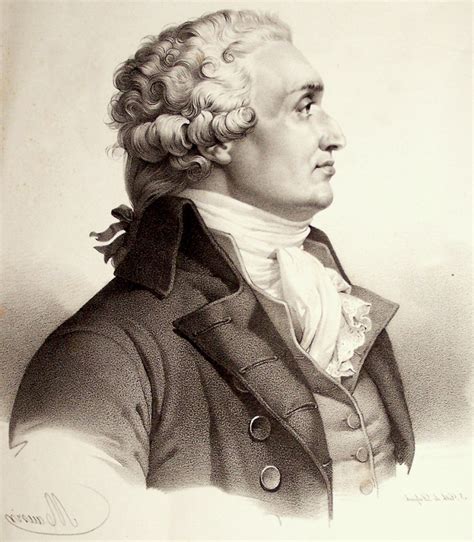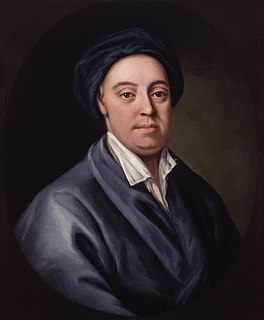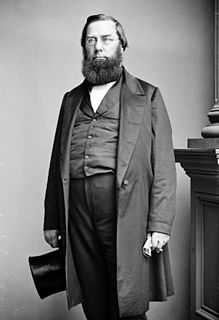A Quote by Thomas Love Peacock
The truth, I am convinced, is that there is no longer a poetical audience among the higher class of minds, that moral, political, and physical science have entirely withdrawn from poetry the attention of all whose attention is worth having; and that the poetical reading public being composed of the mere dregs of the intellectual community, the most sufficing passport to their favour must rest on the mixture of a little easily-intelligible portion of mawkish sentiment with an absolute negation of reason and knowledge.
Quote Topics
Absolute
Am
Among
Attention
Audience
Being
Class
Community
Composed
Convinced
Dregs
Easily
Entirely
Favour
Having
Higher
Intellectual
Intelligible
Knowledge
Little
Longer
Mere
Minds
Mixture
Moral
Most
Must
Negation
Passport
Physical
Physical Science
Poetry
Political
Portion
Public
Reading
Reason
Rest
Science
Sentiment
Truth
Whose
Worth
Related Quotes
There again," said Syme irritably, "what is there poetical about being in revolt? You might as well say that it is poetical to be sea-sick. Being sick is a revolt. Both being sick and being rebellious may be the wholesome thing on certain desperate occasions; but I'm hanged if I can see why they are poetical...It is things going right," he cried, "that is poetical! Our digestions, for instance, going sacredly and silently right, that is the foundation of all poetry...the most poetical thing in the world is not being sick.
Poetical feelings are a peril to scholarship. There are always poetical people ready to protest that a corrupt line is exquisite. Exquisite to whom? The Romans were foreigners writing for foreigners two millenniums ago; and for people whose gods we find quaint, whose savagery we abominate, whose private habits we don't like to talk about, but whose idea of what is exquisite is, we flatter ourselves, mysteriously identical to ours.
I am very willing to admit that I have some poetical abilities, and as few - if any - writers, either moral or political, are intimately acquainted with the classes of mankind among whom I have chiefly mingled, I may have seen men and manners in a different phasis from what is common, which may assist originality of thought.
For this reason poets and artists developed the doctrine of Art for Art's Sake. The community did not appear to need them, so, tit for tat, they did not need the community. This being granted, it was no longer necessary or even desirable to make one's poetry either intelligible or sympathetic to the community.
Where faith commences, science ends. Both these arts of the human mind must be strictly kept apart from each other. Faith has its origin in the poetic imagination; knowledge, on the other hand, originates in the reasoning intelligence of man. Science has to pluck the blessed fruits from the tree of knowledge, unconcerned whether these conquests trench upon the poetical imaginings of faith or not.
A great man, who was convinced that the truths of political and moral science are capable of the same certainty as those that form the system of physical science, even in those branches like astronomy that seem to approximate mathematical certainty. He cherished this belief, for it led to the consoling hope that humanity would inevitably make progress toward a state of happiness and improved character even as it has already done in its knowledge of the truth.
Among those today who believe that modern poetry must do without rhyme or metre, there is an assumption that the alternative to free verse is a crash course in villanelles, sestinas and other such fixed forms. But most... are rare in English poetry. Few poets have written a villanelle worth reading, or indeed regret not having done so.
The time has already come when each country needs a considered national policy about what size of population, whether larger or smaller than at present or the same, is most expedient. And having settled this policy, we must take steps to carry it into operation. The time may arrive a little later when the community as a whole must pay attention to the innate quality as well as to the mere numbers of its future members.
The drama is not a mere copy of nature, not a facsimile. It is the free running hand of genius, under the impression of its liveliest wit or most passionate impulses, a thousand times adorning or feeling all as it goes; and you must read it, as the healthy instinct of audiences almost always does, if the critics will let them alone, with a grain of allowance, and a tendency to go away with as much of it for use as is necessary, and the rest for the luxury of laughter, pity, or poetical admiration.
